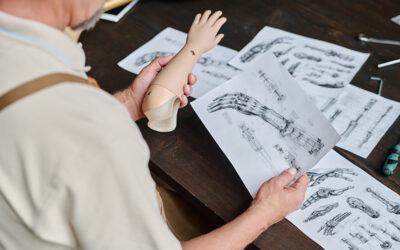Postoperative complications significantly contribute to patient morbidity and mortality, prolonged hospital stays, and increased healthcare costs. These complications can be general or specific to the type of surgery performed. Accurate reporting of postoperative complications using appropriate ICD-10 codes is essential for clear communication among healthcare providers and effective patient care management.
Specialized medical coding services for surgical centers can ensure precise ICD-10 code assignment, based on detailed provider documentation that clearly establishes the relationship between the condition and the surgical care or procedure. With certified medical coders for accurate ICD-10 coding, surgical centers can minimize errors, enhance compliance, and receive optimal reimbursement.
Enhance your practice’s coding accuracy with our expert medical coding services!
ICD-10 Codes for Common Post-Surgical Complications
Medicare payment for surgical procedures covers pre-operative, intra-operative, and post-operative services that are routinely provided by the surgeon or other members of the same group with the same specialty. Inaccurate coding of post-operative complications can negatively impact provider profiles and reimbursement.
Some examples of postoperative complications are wound infections, coronary artery bypass graft thrombosis, infected joint prosthesis and pulmonary emboli within one week of surgery. ICD-10 coding for postoperative infections is based on whether the reported condition is an expected outcome of the surgery or complication.
Paralytic Ileus: Postoperative ileus is a malfunction of intestinal motility after major intra-or extra-abdominal surgery. But generally, most surgeons consider the ileus which is present up to three days post-procedure as an expected outcome. In that case, the condition would be coded as “K91.3” (post-procedural intestinal obstruction). But after three days, if the patient does not experience a return of normal bowel function, it is likely to be a complication. The relevant ICD-10 codes are:
- K56.0 – Postoperative paralytic ileus
- K91.89 – Other postprocedural complications and disorders of digestive system
- K56.0 is typically used when a patient presents with symptoms of colonic obstruction such as abdominal pain, bloating, and constipation, which require medical intervention.
Atrial Fibrillation (AF): Post-operative atrial fibrillation (POAF) is a common complication, occurring in nearly half of patients after cardiac surgery. Factors that may indicate AF as an expected outcome include a patient’s history of AF, especially if the condition resolves on its own without treatment. However, it is considered a complication if treatment is required, either with medications or defibrillation. The physician must specifically document that the post-operative atrial fibrillation is a complication of the procedure.
The following ICD-10 code is used for complications that occur after a surgical procedure involving the cardiovascular system, but do not have a more specific code.
- I97.89 – Other post-procedural complications and disorders of the circulatory system, not elsewhere classified
It can be applied when post-operative cardiovascular complications like arrhythmias, heart failure, or other issues arise after surgery and are not specifically classified elsewhere. If the complication is related to a surgical procedure (e.g., cardiac surgery), this code may be appropriate.
- I48.0 – Paroxysmal atrial fibrillation
Paroxysmal atrial fibrillation is a type of irregular heart rhythm that comes and goes. The condition can occur post-operatively, especially after cardiac surgery, and if it requires treatment or is persistent, this code would be applicable. Code 148.0 is typically used when atrial fibrillation is documented as occurring in episodes, typically lasting from minutes to hour.
Atelectasis: This is a very common post-operative complication that occurs after most abdominal or trans-thoracic procedures. However, it is an expected condition that occurs within the first 48 hours postoperatively. If the physician reports the disorder as a complication, then the code would be:
- J95.89 – Other post procedural complication and disorders of the respiratory system, not elsewhere classified
- J98.11 – atelectasis (used when patient is diagnosed with atelectasis)
Other ICD-10 codes for postoperative complications include:
- T81.4-6 – Surgical site infections
- I97.51 – Accidental puncture and laceration of a circulatory system organ or structure during a circulatory system procedure
- G97.41 – Accidental puncture or laceration of dura during a procedure, if a durotomy occurs during a current operation
- K91.72 – Accidental puncture and laceration of a digestive system organ or structure during other procedure
- K91.89 – Other postprocedural complications and disorders of digestive system
- T88.0 – Other unspecified complications relating to a surgical procedure
- T81.32XA – Disruption of internal operation (surgical) wound
- K91.89 – Other post-procedural complications and disorders of the digestive system
- N99.89 – Other postprocedural complications and disorders of genitourinary system
As of October 1, 2024, the following ICD-10 codes are pertinent to post-operative complications:
T81.89 – Other complications of procedures, not elsewhere classified. This code encompasses various procedure-related complications that don’t have a specific classification.
T81.9XXA – Unspecified complication of procedure, initial encounter. This code is used when a post-operative complication is identified, but a more specific diagnosis isn’t determined during the initial encounter.
T88.9XXA – Complication of surgical and medical care, unspecified, initial encounter. This code applies to unspecified complications arising from surgical and medical care during the initial encounter.
Documentation of Complications of Care in ICD-10
The 2025 ICD-10-CM Official Guidelines for Coding and Reporting states that code assignment for complications of care is based on “the provider’s documentation of the relationship between the condition and the care or procedure, unless otherwise instructed by the classification.” This guideline is applicable to any complications of care, regardless of the chapter the code is located in. It further emphasizes that:
- Not all conditions that occur during or following medical care or surgery are classified as complications.
- A cause-and-effect relationship must exist between the care provided and the condition, and the documentation must support that the condition is clinically significant.
- The provider does not have to explicitly document the term “complication.” For example, if the condition impacts the course of the surgery, as noted in the operative report, it would be appropriate to assign a complication code.
- The coder should query the provider for clarification if the documentation is unclear as to the relationship between the condition and the care or procedure.
Based on this, let’s look at the key guidelines for coding postoperative complications.
Coding Guidelines
Adhere to the following standard guidelines when coding post-op complications:
- Document the relationship: Follow the documentation requirements for postoperative complication codes. Ensure there is a clear cause-and-effect relationship between the surgery or procedure and the complication. The documentation should state that the condition is indeed a post-operative complication.
- Use appropriate ICD-10 codes for surgical complications: Post-operative complications should be coded using the appropriate post-procedural complication codes (e.g., T81.89, T88.9 series) to indicate that the condition occurred after a specific procedure.
- Ensure specificity: Code with specificity, including the type of complication (e.g., infection, bleeding, or wound disruption). If the complication involves multiple systems (e.g., post-operative infection leading to sepsis), use the appropriate codes for each condition.
- Query the provider if unclear: If documentation is unclear about whether a condition is a complication or if it is related to the surgery, the coder should query the provider for clarification.
- Document post-operative complications as such: Complications must be specifically identified and documented by the healthcare provider. Remember usages such as “due to,” “resulted from,” or “the result of” indicates complication of care.
- Code the most severe condition first: If multiple complications are present, code the most severe or significant complication first.
- Consider the encounter: For post-op complications that are addressed during follow-up care, use appropriate codes to reflect whether it is an initial or subsequent encounter.
It’s important to note that while complications of care are often unexpected or unusual outcomes following treatment, the term “complication” in ICD-10 does not imply that improper or inadequate care was provided. Complications are an inherent risk of surgeries and can happen even with the best care. Ensuring accurate documentation of post-surgical complications is necessary to track them and improve patient care and outcomes.
Need help with accurate postoperative complication coding?
To ensure compliance and improve your reimbursement




